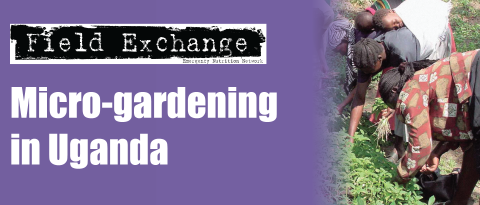New Guide on Cash-Transfer Programming in Emergencies

Men at work on gulley control in CFW programme in Somalia
In a food crisis, distributing cash in a targeted manner can often meet people's immediate needs more quickly and appropriately than providing food aid or other commodities. Cash gives people choice and preserves their dignity. Commodity distribution poses logistical problems, and food aid may disrupt local markets if food is available locally. There is growing consensus amongst humanitarian actors that cash is an appropriate intervention when food or other essential commodities are available locally, and markets are functioning. But fears remain among many humanitarian agencies that cash transfers will pose security risks and not be used to meet basic needs. A new guide by Oxfam on Cash Programming in Emergencies addresses many of these issues. In this guide, the first of its kind, Oxfam staff present the rationale behind cash-transfer programmes, compare cash grants, vouchers, and cash-for-work, and describe the practical steps in the implementation of each. They draw on Oxfam's wide experience of operating such programmes in Africa, Asia and Latin America, including the recent responses to the devastation caused by the Indian Ocean tsunami in December 2004.
The aim of the guide is to support the implementation of cash programmes. It is divided into two parts. The first part covers the planning of cash interventions. This includes the reasons why and when cash is an appropriate response to meet basic food and non-food needs, as well as livelihood needs, in many emergency contexts. It gives basic checklists for assessments, in particular for assessing markets. Part one also covers criteria for determining whether cash grants, cash for work, or vouchers are the most appropriate type of cash intervention. Part two gives guidance on the implementation of different types of cash programmes. Grants, cash for work and vouchers are covered in one chapter each. Each chapter follows a similar format, and includes practical information on planning the intervention, selecting beneficiaries, setting pay rates (or size of grant, value of voucher), transferring cash, staff and management requirements, monitoring and evaluation.
The guidelines are primarily intended for NGO personnel, such as humanitarian programme managers, food-security specialists, public-health engineers, finance staff, and logisticians. Policy makers in donor organisations and international agencies will also find them relevant.
A trial edition has been produced before final publication to get feedback from field workers and academics. The review process will be completed by the 19th of August 2005, after which the final version of the guide will be published as a book in Oxfam's Skills and Practice Series in January 2006.
If you would like to pre-order copies of the guide, please contact the Oxfam publishing team on email: publish@oxfam.org.uk, or through their website: www.oxfam.org.uk/publications. Alternatively, contact Oxfam Publishing, Oxfam GB, Oxfam House, John Smith Drive, Cowley, Oxford, OX4 2JY, UK. Tel: + 44 (0)1865 473727
Cash-Transfer Programming in Emergencies, Edited by Pantaleo Creti and Susanne Jaspars. Trial edition for Oxfam Skills and Practice, June 2005
Imported from FEX website


